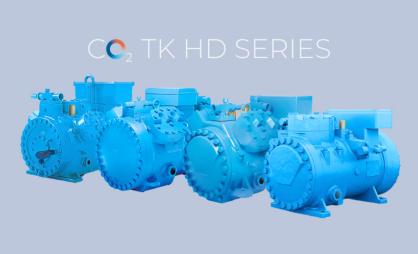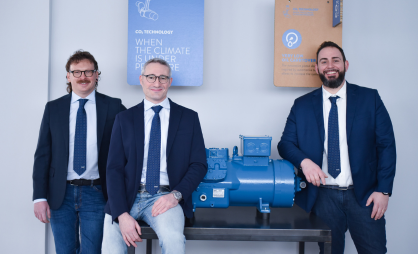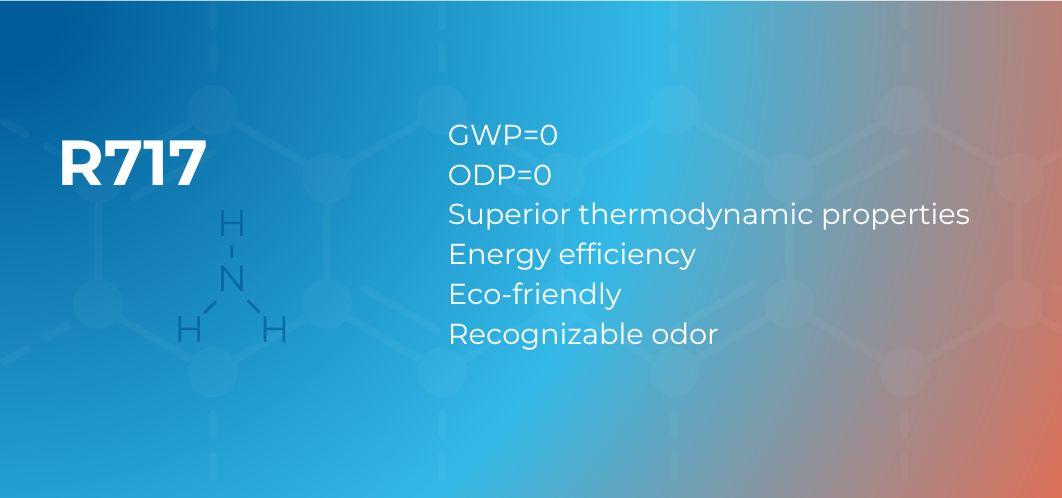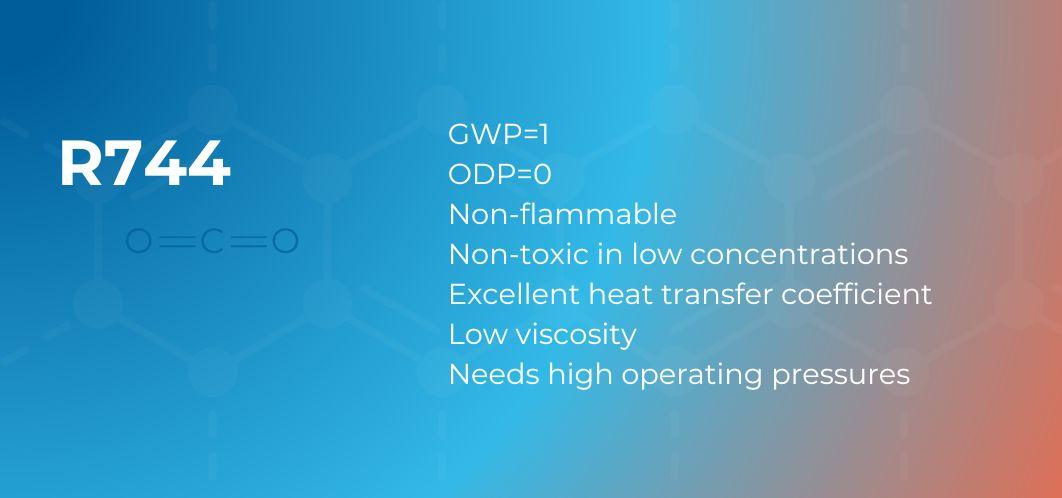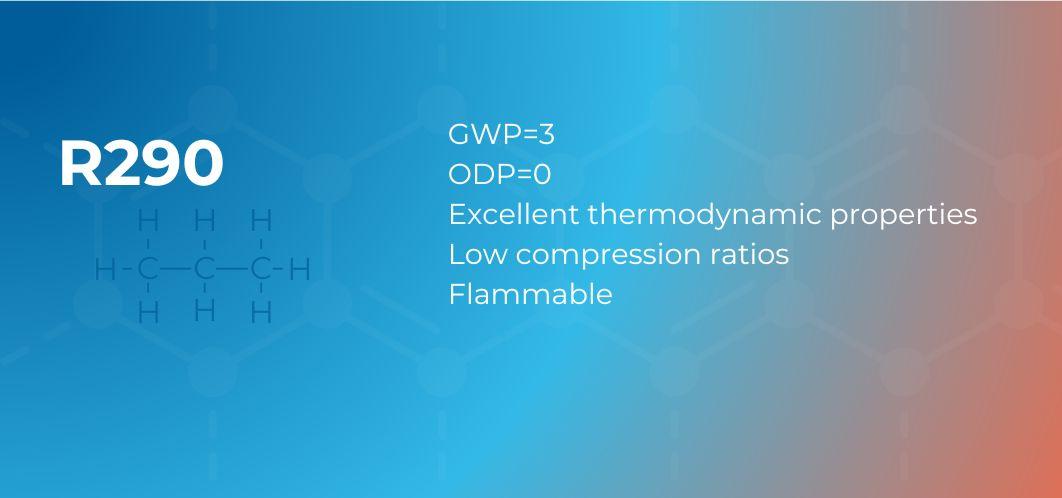The future of refrigeration is natural
Frascold clears things up
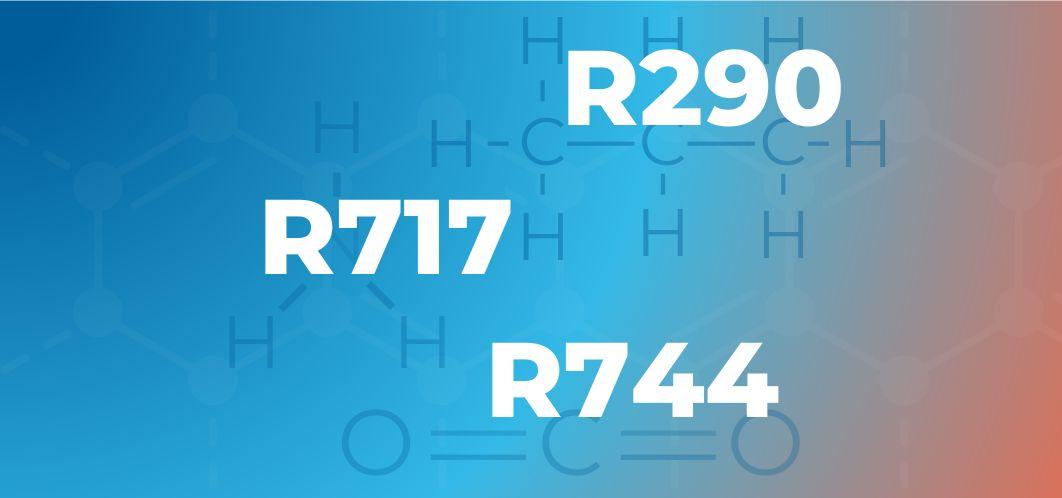
Ammonia, carbon dioxide and hydrocarbons: three HFC alternatives for natural, safe refrigeration.
Sustainable innovation has always been the beating heart driving Frascold’s growth. In the HVAC&R sector the company’s goal is to be a leader in the decarbonization process and it is set to play a key role in the fight against climate change. In fact, for some time, the company has stood out thanks to two factors: its efficient compressors that use natural refrigerants with low environmental impact; and its investments in R&D aimed at developing increasingly advanced solutions in terms of sustainability, safety and performance. In addition, the combination of its Testing Center, with numerous test benches including an endurance/calorimeter for propane compressors, test benches for CO₂ solutions and a team of highly qualified technicians, guarantees the highest levels of performance and quality in the development of new, cutting-edge solutions.
The factors to consider when selecting the correct refrigerant gas
When deciding which refrigerant to use, several key factors need to be considered which are directly related to the nature of the substance itself: factors such as flammability, toxicity, corrosivity and climate impact. The last factor is the result of the combination of a direct and indirect contribution: the first is caused by refrigerant losses that can occur as the equipment operates, while the second is generated by the amount of CO₂ introduced into the atmosphere as a result of the use of fossil fuels to produce the electricity needed to operate the machine. Summing these values defines the overall environmental impact of a refrigerant during the entire life cycle. It is known as the TEWI - Total Equivalent Warning Impact.
Natural refrigerants
The main characteristic of natural refrigerants, in addition to being sustainable (zero ODP and very low - or even zero - GWP), is their availability in large quantities. Refrigerants such as ammonia (R717), carbon dioxide (R744) and hydrocarbons, such as propane (increasingly thought of as the net zero refrigerant), are all classified as natural. All three can be found in the solutions offered by Frascold and an analysis is given below of their performance, limits and application areas. Two other natural refrigerants are air and water.
Ammonia (NH₃)
Ammonia, classified as a natural refrigerant (R-717), has a GWP and an ODP of zero and stands out due to its superior thermodynamic properties in refrigeration cycles. It is considered one of the most energy-efficient refrigerants, both in high and low temperature applications, making it ideal for large plants where efficiency is the priority. It is eco-friendly and its distinctive smell is its biggest advantage in terms of safety: leaks will never go undetected. Compatible with the most common materials, except copper and brass, it requires the use of hermetic or semi-hermetic compressors, with special coatings or aluminum windings for the motor. Ammonia is typically used in industrial refrigeration but can be used as a refrigerant fluid in cooling, freezing and deep-freezing systems.
Carbon dioxide (CO₂)
Carbon dioxide, also known as R744, has a GWP of 1 and an ODP of zero. It is colorless, odorless, non-flammable and non-toxic in low concentrations. Used as a reference to evaluate the climate altering impact of other refrigerants, it has exceptional thermodynamic properties which include a high volumetric cooling capacity, an excellent heat exchange coefficient and an extremely low viscosity. A further advantage is its wide availability on the market and many industrial processes create it as a by-product thereby contributing to it being an economically advantageous choice. One potential drawback, though, is that, at the same temperature, CO2 requires higher operating pressures than other refrigerants for efficient operation, thus requiring specific plant arrangements. That is why it is more widely used in commercial refrigeration since complex, high-efficiency systems are required. In practice, it is typically used in three different refrigeration cycles: in sub-critical (cascade) systems, in transcritical systems in CO₂-only plants and as a secondary fluid in which CO₂ is only used as a heat transfer fluid. Finally, it is also used in industrial refrigeration, refrigerated transport and heat pumps.
Hydrocarbons
Hydrocarbons, thanks to their excellent thermodynamic properties, negligible GWP and zero ODP, represent the ideal substitutes for HFCs and, in most applications, perform better. They are more efficient, thanks to their outstanding thermodynamic properties and relatively lower compression ratios, which, over time, put less stress on the equipment and result in a longer compressor life. Due to their flammability, they are governed by various regulations and standards, which allow for limited loads in equipment such as plug-ins (max. 500g), according to EN IEC 60335-2-89:2022. In addition, solutions using hydrocarbons must be ATEX certified with reference to Directive 2014/34/EU and only authorized and certified personnel can handle and maintain them. Typical applications using hydrocarbons are: domestic refrigerators and freezers, commercial refrigeration, dehumidifiers, heat pumps even up to 80°C of condensation, small air conditioners and drinks dispensers. They can also be used in near-cryogenic applications for temperatures around -80°C / -90°C.
The importance of relying on a specialist
Frascold is a leader in the sector and offers a wide range of compressors that can use all three natural refrigerant gases: from hydrocarbons, to ammonia and CO₂, following a technologically neutral approach designed to identify, together with the customer, the most suitable solution for their needs. The importance of relying on a specialist like Frascold lies both in the added value which is guaranteed by the expertise of its team of professional technicians and by its ability to be a solution-oriented partner, able to turn every challenge into an opportunity, in the name of quality and sustainability.

